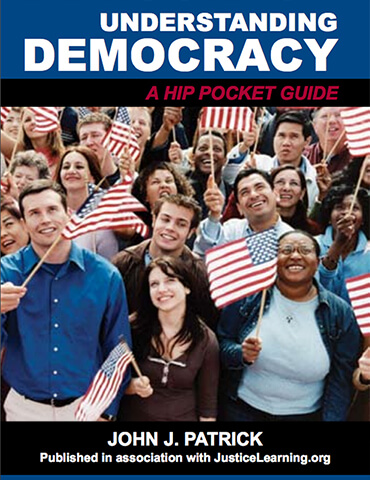According to the American Civil Liberties Union, the organization, founded in 1920, is the “nation’s guardian of liberty, working daily in courts, legislatures and communities to defend and preserve the individual rights and liberties that the Constitution and laws of the United States guarantee everyone in this country.”
Alliance for Justice
The Alliance for Justice describes itself as “a national association of environmental, civil rights, mental health, women’s, children’s and consumer advocacy organizations” that works to “advance the cause of justice for all Americans, strengthen the public interest community’s ability to influence public policy, and foster the next generation of advocates.”
National Academy of Social Insurance
The National Academy of Social Insurance is a nonprofit organization that evaluates economic security programs for people out of work due to disability, unemployment or retirement.
Employment Policies Institute
The Employment Policies Institute focuses on labor issues and, especially, the debate over the minimum and living wages.
Center on Budget and Policy Priorities
The Center on Budget and Policy Priorities says in its mission statement that it works “at the federal and state levels on fiscal policy and public programs that affect low- and moderate-income families and individuals.”
Social Science Research Council
The Social Science Research Council is a New York-based “independent not-for-profit research association” that brings the work of academic social scientists to contemporary social problems.
Affirmative Action
This timeline addresses U.S. Supreme Court cases related to affirmative action.
National Academies
The nonprofit National Academies — the National Academy of Sciences, the National Research Council, the Institute of Medicine and the National Academy of Engineering — generate and disseminate expert research and judgments on matters of science, including the social sciences. They bill themselves as “advisers to the nation on science, engineering, and medicine.”
Migration Policy Institute
The Migration Policy Institute is a nonpartisan think tank that studies international migration.
NumbersUSA
NumbersUSA describes itself as a “non-partisan, public policy organization that favors an environmentally sustainable and economically just America” or, more succinctly, an “immigration-reduction organization.”
National Immigration Law Center
The National Immigration Law Center analyzes proposed immigration legislation and litigates on behalf of immigrants’ rights. The NILC partners with community advocates in states that have high immigrant populations and works to help low-income immigrants get legal, medical and social assistance.
National Immigration Forum
National Immigration Forum is an immigrant rights organization that, according to its website, “advocates and builds public support for public policies that welcome immigrants and refugees and are fair to and supportive of newcomers to our country.”
Leadership Conference on Civil Rights
The Leadership Conference on Civil Rights says it is “the nation’s premier civil rights coalition,” and it has “coordinated the national legislative campaign on behalf of every major civil rights law since 1957.” It was founded in 1950 by A. Philip Randolph of the Brotherhood of Sleeping Car Porters, Roy Wilkins of the NAACP and Arnold Aronson of the National Jewish Community Relations Advisory Council. Today, the LCCR has more than 180 member organizations, including People for the American Way, AARP, the American Civil Liberties Union, the AFL-CIO and constituent unions, the NAACP, National Council of La Raza, the Human Rights Campaign and the National Organization for Women.
Federation for American Immigration Reform
The Federation for American Immigration Reform is a nonprofit organization promoting more restrictive immigration laws. FAIR favors improved border security, an end to illegal immigration and restrictions on legal immigration, which means that the legislation it supports is often spearheaded by Republicans and its concerns correlate with conservative causes.
Economic Policy Institute
Founded in 1986, the Economic Policy Institute says it aims to broaden the economic policy debate “to include the interests of low- and middle-income workers.”
Department of Homeland Security
The Department of Homeland Security was established in 2002 after the Sept. 11 terrorist attacks. The department’s primary responsibilities are to prevent terrorist attacks and to respond to national security threats.
Center for Immigration Studies
The Center for Immigration Studies, founded in 1985, is a think tank “devoted exclusively to research and policy analysis of the economic, social, demographic, fiscal, and other impacts of immigration on the United States.”
Understanding Democracy: A Hip Pocket Guide
This guide, written by John J. Patrick, explains the core concepts of democracy in a clear A-Z format.
American Immigration Lawyers Association
The American Immigration Lawyers Association is a professional organization of more than 10,000 immigration attorneys and legal professors. Its members represent a variety of immigrants, including asylum seekers, entertainment personalities, families that wish to bring relatives to the United States and companies wanting to sponsor foreign workers’ entry to the United States.
American Enterprise Institute
The AEI describes itself as dedicated to “limited government, private enterprise, individual liberty and responsibility, vigilant and effective defense and foreign policies, political accountability and open debate.”
Kaiser Family Foundation
The Kaiser Family Foundation, a research-based health care philanthropy, describes its mission as “to inform discussion and debate on major issues that affect millions of people, especially the most vulnerable and disadvantaged, and to elevate the national level of debate on health issues.”
Centers for Medicare & Medicaid Services
CMS, an agency within the U.S. Department of Health and Human Services, primarily administers Medicare and works in partnership with the states to administer Medicaid, the State Children’s Health Insurance Program (SCHIP) and other programs.
Centers for Disease Control and Prevention
The Centers for Disease Control and Prevention was founded in 1946 to help control malaria and has since become a major player in the public health arena.
Introduction
The Supreme Court of the United States seems a mysterious, distant institution. Its justices conduct their business in an imposing marble building; they don formal black robes to hear oral arguments and issue decisions; and they announce those decisions through the technical language of the law.
Epilogue
The pivotal Supreme Court cases described in this book remind us that our constitutional system places change and continuity in constant tension. And that is just what the framers of the Constitution intended.
